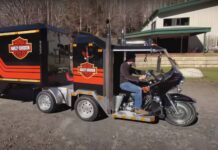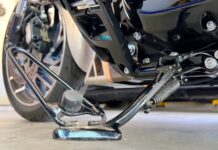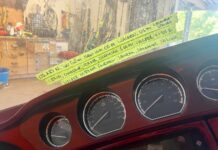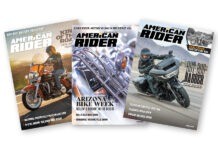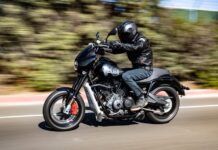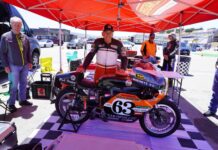As is the custom this time of year, we all tend to reflect back on the past, contemplate the future and consider what resolutions we might like to make. Even though I try to focus on the here and now, I do find myself grateful for the life I live and take stock of my many blessings. Mostly I’m grateful for the wonderful people who take the time to share their lives with me. Most I do not see often enough, but I do try to make sure to swing by for a visit as I trip through their area. I have a very interesting group of individuals in my life and I find each and every one of them a treasure.
One of my dearest friends is a retired soldier who takes me in and feeds me when I find myself in his neck of the woods. He always seems to know when I’m in need of a warm, soft place to land and I know his door is always open to me. We’ve spent a lot of time together over the last few years, both on the road and off, and I have to say, I have a great deal of respect for the man. As a kid he rode semi-pro on the dirt track and, just last year at 51 years old, suited up again to take second in a seniors race. He’s built a couple of eye-catching custom bikes, won awards and has been involved as support and mechanic in both of the Coast-to-Coast Motorcycle Cannonball runs. He has a wonderful sense of humor and is a notorious smartass.
Mongo can think on his feet and is a great friend to have beside you when things get dicey, but predictability is not one of his traits. A man of his word, yes. The fact that you can never really guess what’s going on in his head, however, is one of the things I find most refreshing about the stubborn Irishman who followed the footsteps of generations of Kellys into the military as a young man.
Mongo talks a lot about his days as a soldier and openly mourns the loss of his uniform (which still fits) and the life of being a strict, proud Marine. He talks about his men, the creed of “seek out, isolate and destroy” and how he lived out in the bush for weeks on end, surviving off the land as he fought Reagan’s war on drugs from the ground.
He’s traveled all over the world as a soldier and has made up a little song to illustrate the extent of his adventures that included 176 days of floating around the Indian Ocean during the Iran Crisis while awaiting orders. It’s a very entertaining little ditty that he performs on cue with a smile. He holds up his hand as if being sworn in and says he remembers clearly the day Reagan declared the “crisis” over.
He also talks about being shot. Some days the wince on his face and a slight limp is the telltale sign that he’s feeling the various wounds that plague him still, but the aches do not prevent the regular hikes to the river to walk his Labrador retriever best friend. A 10-mile hike is a routine day as he tends his body with the respect of a warrior, keeping fit and sound.
Even so, sometimes the pain does keep him from his job of twisting wrenches in the mechanic’s bay at the local Harley dealership. He starches his uniform each morning before work with seven-point creases and proudly wears his “Mongo” patch as he greets the owners of the motorcycles he wrenches on. It’s important to him that customers meet and feel good about the man who tears into their beloved machines.
During a visit once, we sat around after supper discussing guns and words started pouring out of him about the M14 and how much he loved the beauty of the weapon he was issued as a young soldier. The wood stock, clean lines and solid 13 pounds of military precision that he respected was his constant companion as he carried out the duties for his country. He gushes over the sheer power of the weapon, as he elaborates over his attachment to the rifle.
When he was reissued an M16, he described the reaction of the dispensary personnel as he handed it back to them and said emphatically, “No, I want my M14 back.” They laughed. He was told that those were old, obsolete (production was stopped in 1964) and this was a much better weapon since it was considerably lighter and modern. He hated it just the same.
As a civilian, Mongo used to have a variety of weapons around the house and would regularly go to the shooting range just to keep his skills toned. He described the typical experience as I watched him disappear before my eyes:
“I would take my rifle out for practice on the local range and get set up with all my sandbags piled up, the poncho laid out next to me to catch my brass.” He pauses here as he visualizes the setting before him, smoothing out the envisioned poncho on the ground. He smiles, as he seems to burrow into the scene.
“I’d have my eye patch and shooter’s hat and I’d turn it around backwards,” he nods here as he pantomimes the process of adjusting the hat snug against his forehead, pressing the eye patch against his left eye and snuggling down deep into his foxhole, leaning his cheek against the butt of the imaginary weapon he so loves. And then, suddenly, he’s there: flat on the ground, nestled in the protective bushes. Taking aim at his target, far from his homeland fighting a war for the president he calls his hero as he protects his fellow Americans from evil, he becomes a soldier again, living off the foreign soil, feeding himself with small game and utilizing the survival skills the Corps taught him so well. It’s a life he trained hard for and lived daily over several years. To this day, he carries a regulation canteen wherever he goes.
He describes the sound of the “fttt ffttt” of the rounds hitting their target, and stays in the position for a few minutes, staring down the sight of the rifle with one eye closed, alone in the world he served in for a few seconds before he again finds himself at the firing range.
“The sheer power of that rifle made them stop and watch my groupings. They all realized from the sound that I had an automatic. The whole place would go silent when I fired.” I tell him I bet he had lots of guys talking to him after he put away his weapon and they saw his expert marksmanship. He laughs and nods, running his hand over his forehead as if removing his shooters hat and patch, a gesture that seems to return him to his recliner in front of the TV in his small house in the backwater town in Northern California. He shakes his head. “I miss Ronnie Baby,” he tells me.




